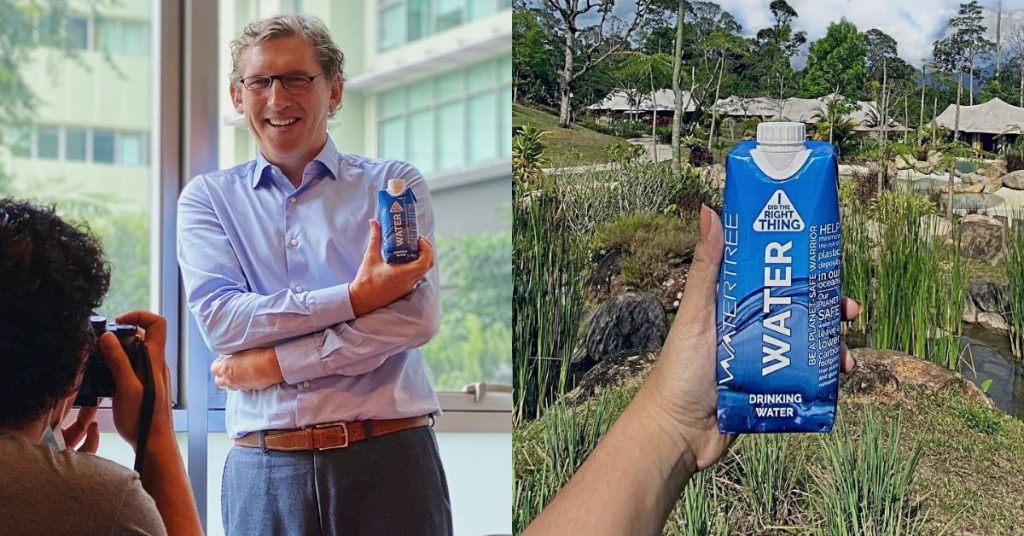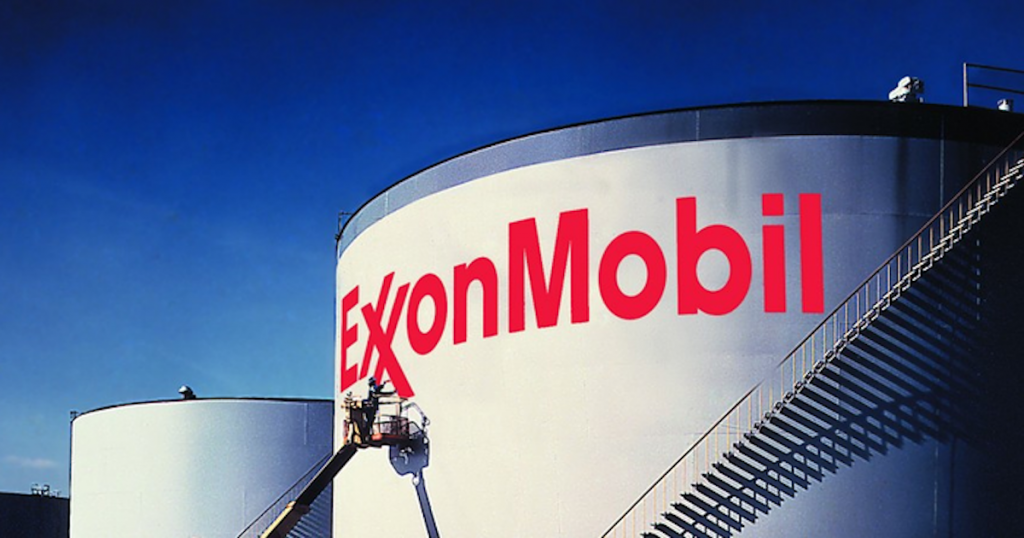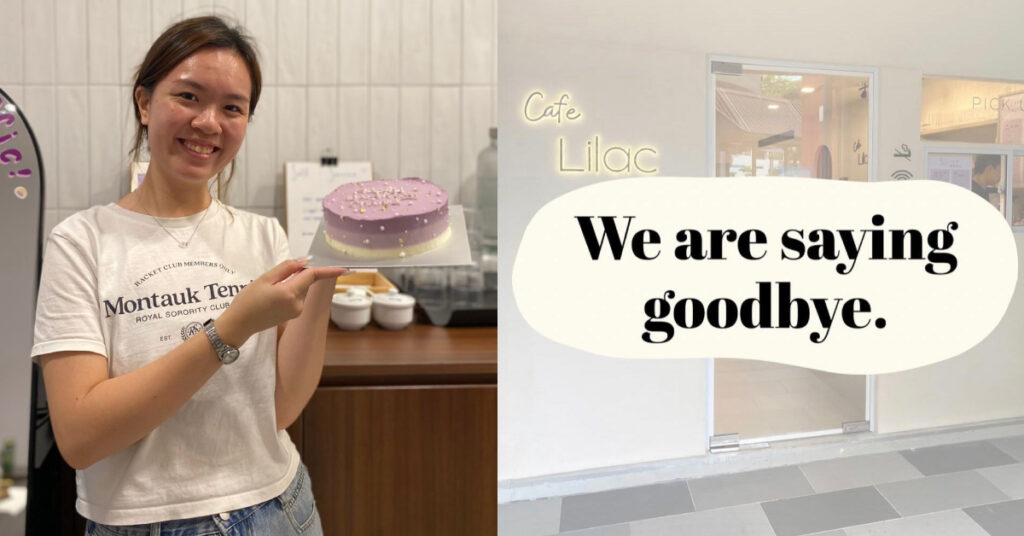While scrolling through Poptron, I came across a company called The Watertree Project (Watertree) selling plant-based water bottles. It’s essentially like milk cartons but meant for filtered water instead.
Their products are targeting businesses who want to reduce their reliance on plastic water bottles. For example, sports clubs and construction companies that supply disposable plastic bottles of water on-site for their staff.
To make it more relatable, think of seminars, hotels, or car dealerships that provide guests with the same plastic water bottles. Watertree’s aim is to essentially replace them with their recyclable water cartons as a practical approach to reduce a business’s carbon footprint and plastic waste.
The Quick Fix
To get an idea of the scale of this problem, Watertree’s co-founder and CEO, Paul, shared that the single-use plastic bottle consumption in Malaysia is an estimated 11 to 12 million bottles per month.
And understanding the impact of plastic on ecosystems is no rocket science. Plastic leaches from landfills into our rivers, which feeds into our oceans, where marine life absorbs microplastics, which humans then indirectly consume.
“Most NGOs are trying to deal with the consequences of plastic pollution, we’re trying to stop it at the source,” Paul told Vulcan Post. The fastest approach to do so is by helping large enterprises that use plastic water bottles shift to a more sustainable option. This includes providing collection and recycling services as well, but more on that later.

Since launching in 2019, Watertree has convinced a number of companies to make the switch, which Paul finds encouraging. Some names include redONE, Allianz, Teknicast, MFE Formwork Technology, Alkahfi Lestari Oil & Gas, and the Royal Malaysia Police Football Club (PDRM F.C.).
“All of whom have senior management who recognise their role as agents of change. It is a hugely positive indicator for our collective future, where enterprises are assuming the burden of problem-solving, not waiting for governments,” shared Paul.
Don’t The Cartons Still Have Plastics In It?
Paul claimed that Watertree’s cartons are made from 75% of paper, which naturally degrades even if they get buried. So to not damage our forests, Tetrapak, the product manufacturer, sources the paper from fast-growing trees that were planted specifically for paper production.
The pod’s plastic cap is also made from sugar cane, which generates fewer carbon emissions during production. However, there are still thin layers of plastic and aluminum sheeting inside the carton to hold the water and protect the paper from getting soaked.
“Our solution is not perfect, but it’s the best option we’ve seen to date,” Paul admitted. “Its manufacture has a much lower carbon footprint than plastic, glass, or metal. And even in a landfill, paper-based cartons are still 75% better than pure plastic solutions.”
To encourage enterprises to dispose of the paper cartons responsibly, Watertree and Tetrapak have created a closed-loop delivery, collection, and recycling service.
Here’s how it works: companies will collect the emptied Watertree Pods from customers who’ve drunk the water on-site. Then, the company’s staff will sort the cartons, compile them, and pass them to Watertree’s recycling service, which will deliver them to KPT, their recycling partner.
Paul reassured that the cartons can in fact be recycled although they contain mixed materials in them. “KPT has created a practical recycling process where they can capture paper fibres from the package for use in high-quality paper products such as industrial paper, cardboard, paper bags, or notepads,” he explained.
“They also capture the remaining plastic and aluminium, then create a new hybrid board material that can be used to make a range of products (e.g. roof tiles and collection bins).”

If not, customers could also cut off the top of the carton and reuse the base to plant seedlings or other types of DIY crafts.
We are not the complete solution to [the plastic waste] problem, but we can give people the opportunity to recognise the problem, make a small positive contribution (even by removing 1 plastic bottle) and hopefully help them think about ways in which they can adapt their lifestyles to include more responsible uses of plastic.
Co-founder and CEO of The Watertree Project, Paul Rogers.
There’s A New Problem
Looking ahead 5 years, Paul’s confident that with combined pressure from shareholders, NGOs, the government, and their customers, more enterprises will adopt plastic alternatives. Running the numbers, he said that in 5 years, he’d expect the number of single-use plastics to be less than 1 million a month, with a majority of alternatives being containers that are truly recyclable.
On a related note, Paul added that single-use plastic water bottles were a large culprit in stocking Malaysia’s landfills when Watertree started 2 years ago. Since then, the pandemic and its lockdowns have facilitated a stunning rise in disposable plastic food containers.
Hence, they’re planning to expand their team to look for solutions for this problem. With companies like Circlepac already showing it’s possible, we could see Watertree entering this space soon.
- You can learn more about The Watertree Project here.
- You can read other startups we’ve written about here.
Featured Image Credit: The Watertree Project











